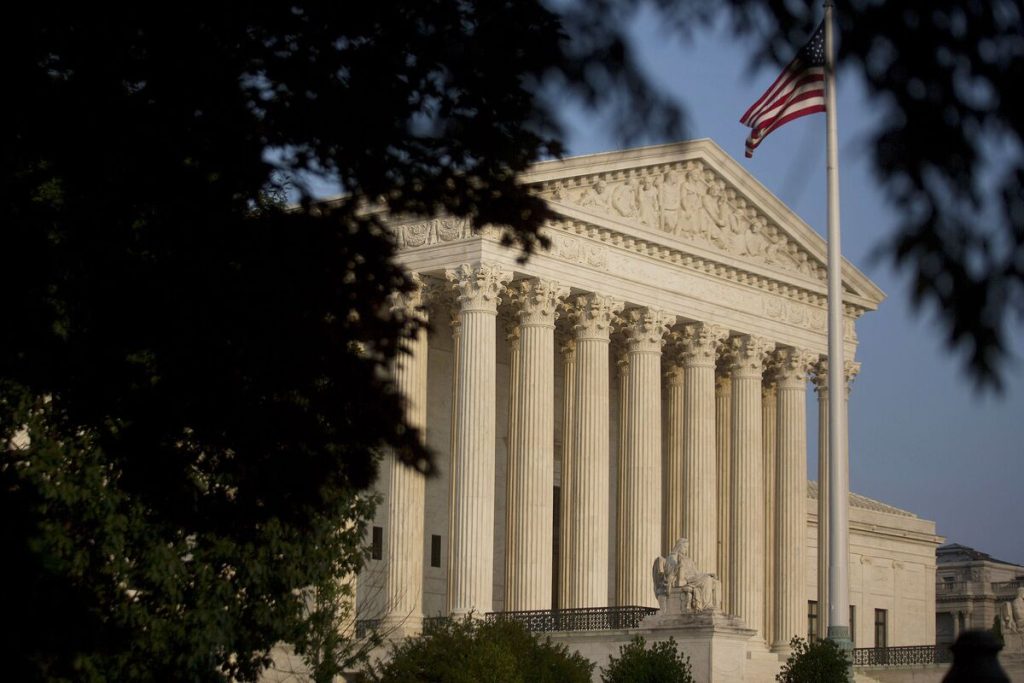Business
Supreme Court Decisions Reshape Federal Agency Authority
In a landmark decision, the Supreme court decisions has effectively terminated the Chevron deference, marking a pivotal change in how federal agency interpretations of statutes will be scrutinized. Chevron deference, established in 1984, dictated that courts should defer to federal agencies’ reasonable interpretations of ambiguous statutes unless the agency’s interpretation was unreasonable.
The recent ruling shifts judicial practice away from automatic deference to agency interpretations, emphasizing statutory clarity. This change aims to bolster judicial oversight and restrict agency discretion in regulatory decisions, marking a significant departure in administrative law, according to Barron’s Subscription.
Increased Scrutiny on Federal Regulations
Another significant ruling has eliminated constraints on challenging federal regulations in court, altering prior practices. Previously, courts reviewed agency regulations deferentially, assessing their authority and avoiding arbitrariness. The new ruling enables more rigorous judicial scrutiny of regulatory actions, potentially rebalancing agency and judicial powers.
Impact on the Marketing Industry
At the helm is Chair Lina Khan, leading the Federal Trade Commission (FTC) against tech industry monopolies. She advocates fiercely against anti-competitive practices, pushing the FTC into aggressive enforcement actions. Khan’s leadership prioritizes consumer protection, particularly in digital markets, shaping the FTC’s regulatory approach significantly.
The FTC assures that it prioritizes core issues like data privacy and regulates artificial intelligence actively. Legal experts expect stakeholders across the marketing industry to pose heightened challenges. They anticipate increased scrutiny and legal challenges for the FTC’s role in regulating advertising practices and protecting consumer data.

SHRM Shifts Focus from Equity in DEI Initiatives
The Society for Human Resource Management SHRM, equity a prominent lobbying group representing 340,000 human-resources professionals…
Varied Industry Reactions
Industry reactions to these rulings vary. The Interactive Advertising Bureau sees the end of Chevron deference positively. They believe it curbs potential agency overreach and ensures clearer judicial oversight. They argue for regulatory actions grounded in statutory authority with transparent reasoning.
However, some in the marketing industry anticipate more legal confrontations and uncertainty over regulatory issues. They worry about impacts on consumer privacy, data sharing, and business adaptability to regulatory changes.
Future Outlook Shifting Regulatory Landscape
Looking ahead, industry groups are expected to contest the FTC’s regulatory agenda more assertively. This change may lead to significant adjustments in crafting and enforcing regulations, potentially impacting nationwide marketing strategies and practices.
Legal battles unfolding and setting new precedents are transforming the regulatory landscape for marketing and advertising in the United States. Stakeholders across the industry will closely monitor courtroom developments and regulatory agencies, preparing to adapt to evolving legal interpretations and enforcement priorities.
Subscribe now to combine The Wall Street Journal Newspaper and Bloomberg Digital for daily market updates, top stock tips, and current content. Get a 3-year all-digital subscription with a 70% discount, seamless support, and premium access across devices. Elevate your finance knowledge today!

